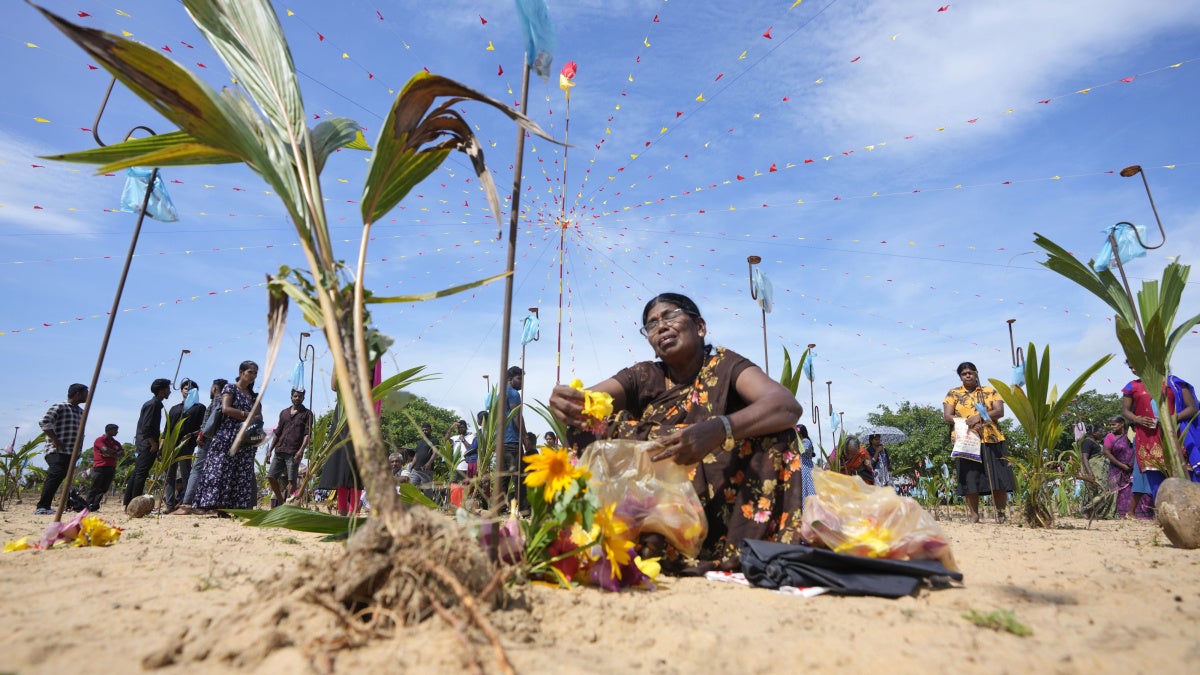New KCS task force targets drugs, scams, illicit cash flows – The Korea Herald

Korea Customs Service Launches Task Force to Advance Sustainable Development Goals
Introduction and Mandate
The Korea Customs Service (KCS) has established a specialized unit, the Transnational Crime Eradication Task Force, to combat a range of transnational crimes. This initiative directly supports the achievement of Sustainable Development Goal 16 (Peace, Justice and Strong Institutions) by strengthening national institutions to combat organized crime, illicit financial flows, and illegal trade.
The unit is structured with two primary wings:
- A specialized operations team for intensive investigations.
- A support team focused on cross-border intelligence analysis and exchange.
Strategic Priorities and SDG Alignment
The task force’s activities are aligned with several key Sustainable Development Goals:
- Combating Illicit Financial Flows (SDG 16, SDG 8): In line with SDG 16.4 (significantly reduce illicit financial and arms flows) and SDG 8 (promote sustained, inclusive and sustainable economic growth), the unit prioritizes intercepting illegal fund movements and money laundering linked to investment scams and gambling syndicates. The KCS is upgrading its criminal fund tracking systems and analyzing overseas financial transaction records to disrupt these networks.
- Ensuring Public Health and Safety (SDG 3): The unit’s actions contribute directly to SDG 3 (Good Health and Well-being) by intensifying inspections of cross-border e-commerce. Recent crackdowns have blocked hazardous counterfeit products containing carcinogens, such as lead and cadmium, at levels exceeding safety standards by over 500 times, thereby protecting consumers.
- Strengthening Global Security and Justice (SDG 16): To advance SDG 16, the task force is focused on intercepting illegal drugs and firearms at the border. The strategy involves a shift toward disrupting global supply chains for these illicit goods.
- Protecting Economic Integrity (SDG 8): The interception of items that infringe on Intellectual Property rights supports fair competition and innovation, which are crucial components for achieving sustainable economic growth as outlined in SDG 8.
International Cooperation and Future Outlook
Reinforcing its commitment to SDG 17 (Partnerships for the Goals), the KCS plans to deepen international partnerships and bolster its investigative infrastructure. A key component of this strategy is the launch of joint operations with nations identified as high-risk.
Planned Initiatives
- Beginning in 2026, joint operations will be launched with international partners, including Cambodia, Laos, and Canada, to disrupt global supply chains.
- The agency will continue to enhance its enforcement of safety standards through international collaboration.
KCS officials have affirmed that the agency will concentrate its capabilities, centered on the new task force, to preemptively block illegal activities at the border and contribute significantly to the global sustainable development agenda.
Analysis of the Article in Relation to Sustainable Development Goals
1. Which SDGs are addressed or connected to the issues highlighted in the article?
- SDG 16: Peace, Justice and Strong Institutions – The article’s central theme is the establishment of a task force by the Korea Customs Service (KCS) to combat transnational crimes, which directly relates to building effective, accountable, and inclusive institutions at all levels.
- SDG 3: Good Health and Well-being – The article mentions the interception of hazardous goods and counterfeit products containing carcinogens, which is directly linked to ensuring healthy lives and promoting well-being by protecting consumers from harmful substances.
- SDG 17: Partnerships for the Goals – The KCS’s strategy involves deepening international partnerships and launching joint operations with other countries to combat these crimes, highlighting the importance of global cooperation.
2. What specific targets under those SDGs can be identified based on the article’s content?
-
SDG 16: Peace, Justice and Strong Institutions
- Target 16.4: By 2030, significantly reduce illicit financial and arms flows, strengthen the recovery and return of stolen assets and combat all forms of organized crime.
Explanation: The article explicitly states the task force’s mission is to root out “transnational crimes, ranging from drug trafficking and organized scams to illicit financial flows.” It details efforts to intercept “illegal fund movements and money laundering,” track “criminal fund tracking systems,” and disrupt the supply of “drugs and firearms.” These actions directly contribute to reducing illicit financial and arms flows and combating organized crime.
- Target 16.4: By 2030, significantly reduce illicit financial and arms flows, strengthen the recovery and return of stolen assets and combat all forms of organized crime.
-
SDG 3: Good Health and Well-being
- Target 3.9: By 2030, substantially reduce the number of deaths and illnesses from hazardous chemicals and air, water and soil pollution and contamination.
Explanation: The article describes the unit’s work in “intensifying inspections of cross-border e-commerce transactions to block hazardous goods.” It provides a concrete example of uncovering “counterfeit products containing carcinogens, such as lead and cadmium, at levels exceeding safety standards by more than 500 times.” By preventing these dangerous products from reaching consumers, the KCS is directly working to reduce illnesses caused by hazardous chemicals.
- Target 3.9: By 2030, substantially reduce the number of deaths and illnesses from hazardous chemicals and air, water and soil pollution and contamination.
-
SDG 17: Partnerships for the Goals
- Target 17.16: Enhance the global partnership for sustainable development, complemented by multi-stakeholder partnerships that mobilize and share knowledge, expertise, technology and financial resources.
Explanation: The article highlights the KCS’s strategy to “deepen international partnerships” and use “cross-border intelligence analysis and exchange.” It specifically mentions plans to “launch joint operations with nations identified as high-risk, including Cambodia, Laos and Canada” starting in 2026. This demonstrates a clear commitment to international cooperation to achieve common goals.
- Target 17.16: Enhance the global partnership for sustainable development, complemented by multi-stakeholder partnerships that mobilize and share knowledge, expertise, technology and financial resources.
3. Are there any indicators mentioned or implied in the article that can be used to measure progress towards the identified targets?
-
SDG 16: Peace, Justice and Strong Institutions
- Implied Indicator for Target 16.4: The value and volume of intercepted illicit goods and financial flows.
Explanation: Progress can be measured by tracking the results of the task force’s activities. The article implies this through its mention of specific actions like “intercepting illegal fund movements,” analyzing “overseas ATM withdrawal records and credit card payments,” and blocking “the domestic circulation of counterfeit currency.” The quantity of seized drugs, firearms, and the amount of laundered money detected would serve as direct indicators of progress.
- Implied Indicator for Target 16.4: The value and volume of intercepted illicit goods and financial flows.
-
SDG 3: Good Health and Well-being
- Implied Indicator for Target 3.9: The quantity and toxicity level of seized hazardous goods.
Explanation: The article provides a specific, measurable example: “counterfeit products containing carcinogens, such as lead and cadmium, at levels exceeding safety standards by more than 500 times.” This suggests that an indicator for progress would be the number of crackdowns and the volume of hazardous products intercepted before they can harm the public.
- Implied Indicator for Target 3.9: The quantity and toxicity level of seized hazardous goods.
-
SDG 17: Partnerships for the Goals
- Mentioned Indicator for Target 17.16: The number and scope of international joint operations and intelligence-sharing agreements.
Explanation: The article explicitly states a future plan that can be used as an indicator: “Starting in 2026, the KCS will launch joint operations with nations identified as high-risk, including Cambodia, Laos and Canada.” The establishment and successful execution of these joint operations would be a clear measure of progress in strengthening global partnerships.
- Mentioned Indicator for Target 17.16: The number and scope of international joint operations and intelligence-sharing agreements.
4. Summary Table of SDGs, Targets, and Indicators
| SDGs, Targets and Indicators | Corresponding Targets | Specific Indicators Identified in the Article |
|---|---|---|
| SDG 16: Peace, Justice and Strong Institutions | 16.4: Significantly reduce illicit financial and arms flows… and combat all forms of organized crime. | Volume and value of intercepted illegal funds, drugs, and firearms; number of money laundering schemes detected through analysis of financial records. |
| SDG 3: Good Health and Well-being | 3.9: Substantially reduce the number of deaths and illnesses from hazardous chemicals… | Quantity of seized hazardous goods; toxicity levels of intercepted products (e.g., carcinogens exceeding safety standards). |
| SDG 17: Partnerships for the Goals | 17.16: Enhance the global partnership for sustainable development… | Number of established international partnerships and joint operations with other countries (e.g., Cambodia, Laos, Canada). |
Source: koreaherald.com
What is Your Reaction?
 Like
0
Like
0
 Dislike
0
Dislike
0
 Love
0
Love
0
 Funny
0
Funny
0
 Angry
0
Angry
0
 Sad
0
Sad
0
 Wow
0
Wow
0













































































